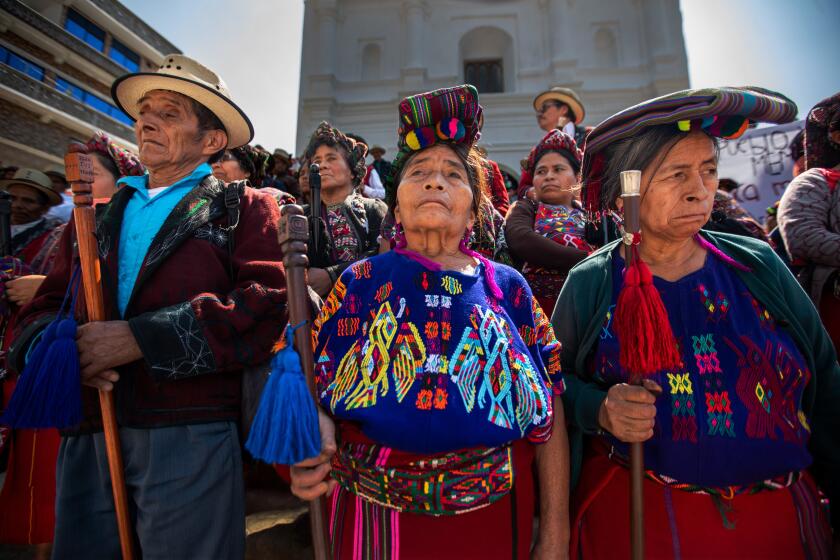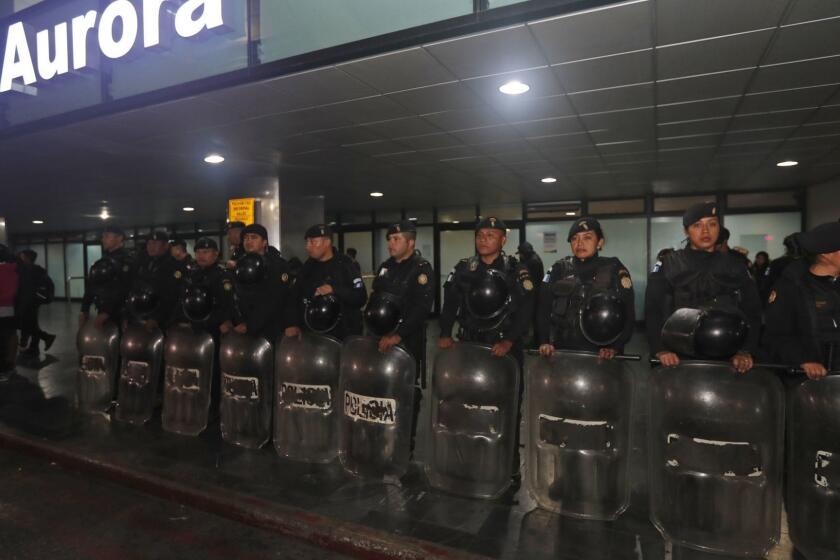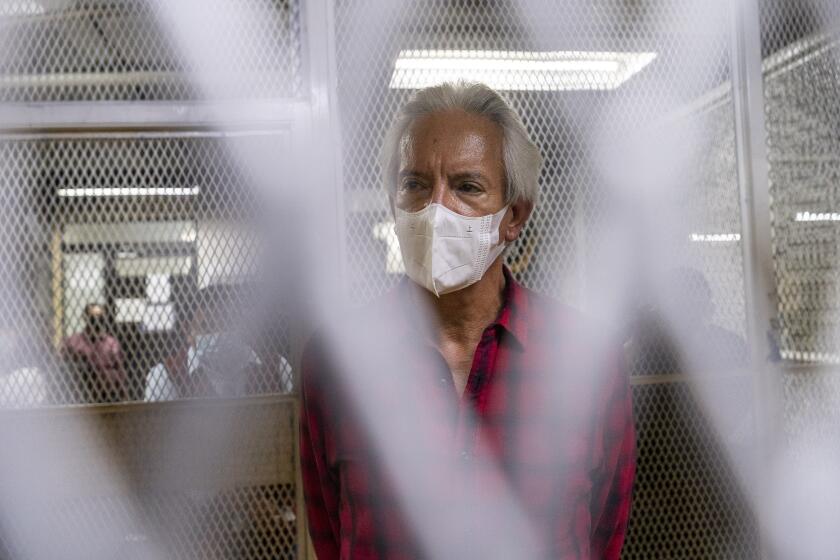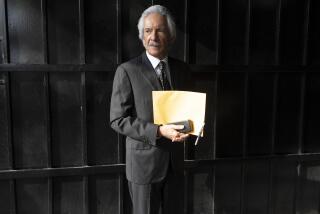Guatemala sending journalist to prison; press freedom groups allege political persecution
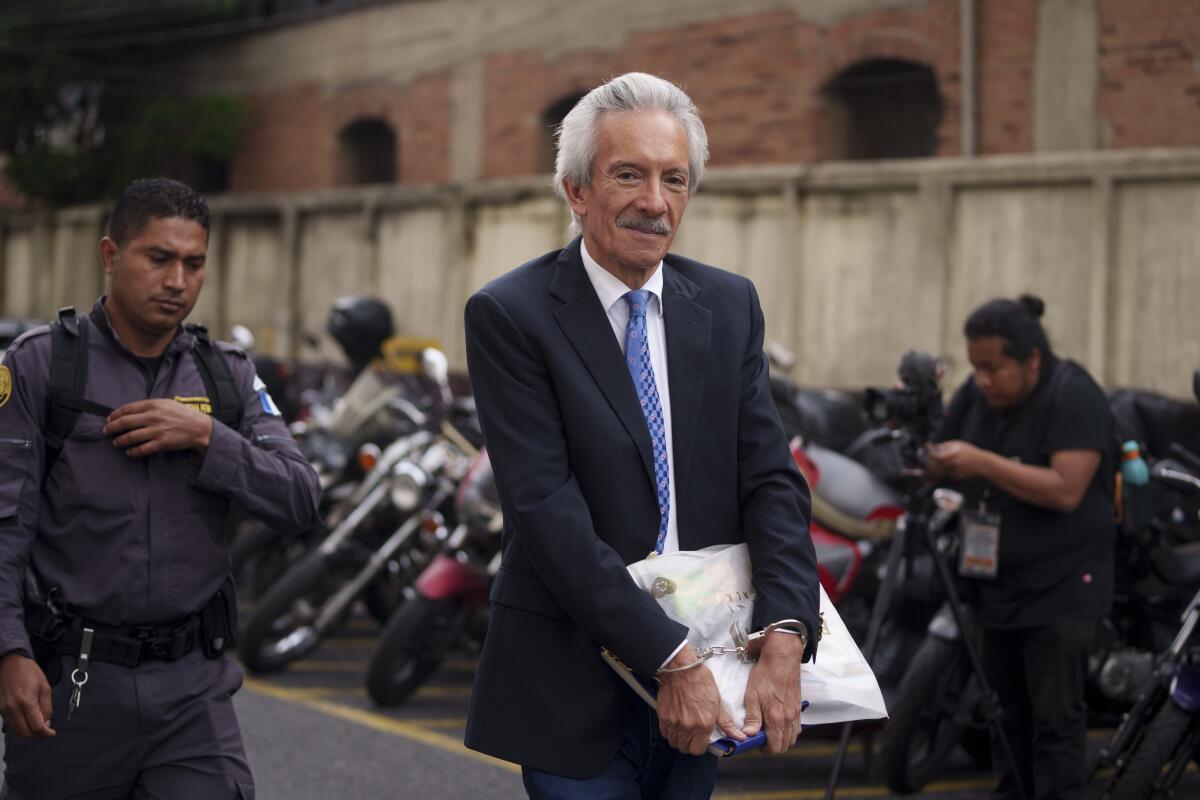
GUATEMALA CITY — A Guatemalan tribunal sentenced newspaper founder José Rubén Zamora to six years in prison Wednesday in a money laundering case, concluding a trial that press freedom groups decried as a political persecution aimed at silencing a critical voice.
The three-judge panel convicted and sentenced the well-known journalist on a charge of money laundering that affected the national economy and stability of the financial system. The tribunal cleared Zamora of additional charges of blackmail and influence peddling.
Guatemala President Alejandro Giammattei, and specifically his justice system, have been criticized internationally for backsliding on democratic principles and weaponizing the country’s prosecutors and courts to pursue perceived enemies.
“I am innocent of the crimes,” Zamora said after his sentencing. “I continue being innocent and he [Giammattei] continues being a thief.”
Giammattei has denied there was any political motivation.
The daughter of a Guatemalan dictator convicted of genocide is running for president, raising questions about the nation’s memory of a brutal civil war.
Zamora’s El Periodico newspaper was known as fiercely independent and published investigations about corruption in the administrations of Giammattei and his predecessors. Zamora’s work has been internationally recognized.
In his final comments to the court Wednesday before the verdict was announced, Zamora said, “all of my rights were violated,” including the right to a defense. “They treated us like criminals, they destroyed evidence,” he said.
Several of his defense lawyers were arrested in the run-up to the trial.
After the hearing, Rafael Curruchiche, the attorney general office’s special prosecutor against impunity who brought the charges against Zamora, was visibly upset and raised his voice, saying prosecutors would likely appeal the sentence and ask for the 40-year sentence they had originally requested.
He said the prison time Zamora would get is compensation for those whose “name and reputation” he and his newspaper destroyed.
The Guatemalan government said Monday that it is expelling a United Nations-backed anti-corruption commission that has investigated the president and other lawmakers — a decision that edges the Central American nation toward a constitutional crisis.
The charges stemmed from Zamora, 66, asking a friend to deposit a $38,000 donation to keep the newspaper going rather than depositing it himself. Zamora has said he did so because the donor did not want to be identified supporting an outlet that was being targeted by Giammattei.
The tribunal fined Zamora an equal amount Wednesday.
With Zamora in jail, El Periodico was forced to stop publishing a print edition Nov. 30 due to its financial difficulties. The outlet halted operations altogether May 15.
Media observers criticize as politically motivated the trial of the leader of an investigative newspaper in Guatemala accused of money laundering.
Last month, the Guatemalan Assn. of Journalists said that at least 20 journalists have been forced to flee the country in recent years.
Following the sentence Wednesday, the New York-based Committee to Protect Journalists condemned the proceeding.
Carlos Martinez de la Serna, CPJ’s program director, said the “shameful” sentence was part of attempts by Giammattei’s government to “criminalize journalism,” and that it signaled an erosion of free speech in Guatemala.
“Guatemalan officials must end the absurd charade of criminal proceedings against him. It is time for José Rubén Zamora to be released, for his only ‘crime’ has been the fearless exercise of his profession.”
More to Read
Sign up for Essential California
The most important California stories and recommendations in your inbox every morning.
You may occasionally receive promotional content from the Los Angeles Times.
